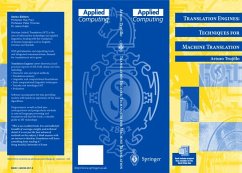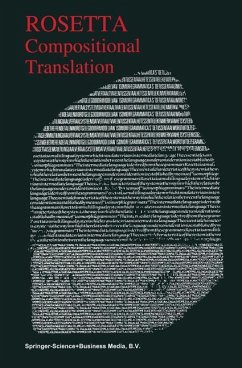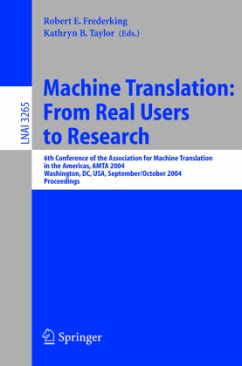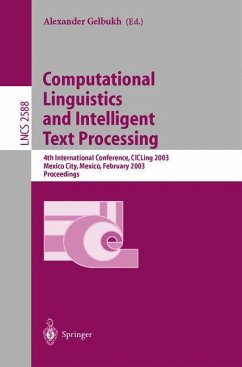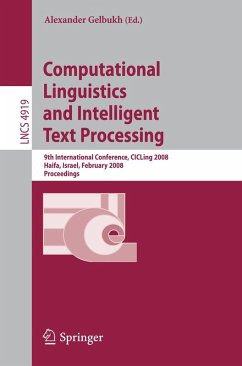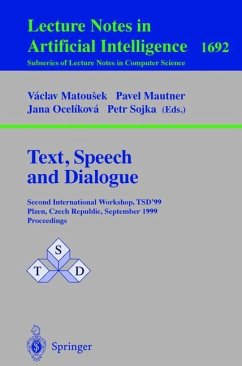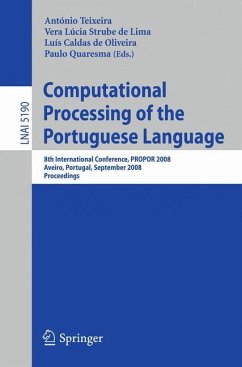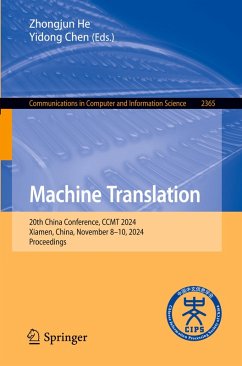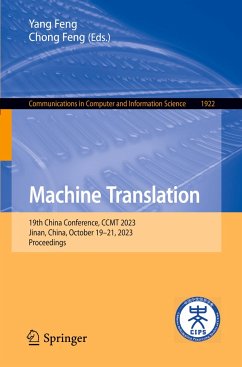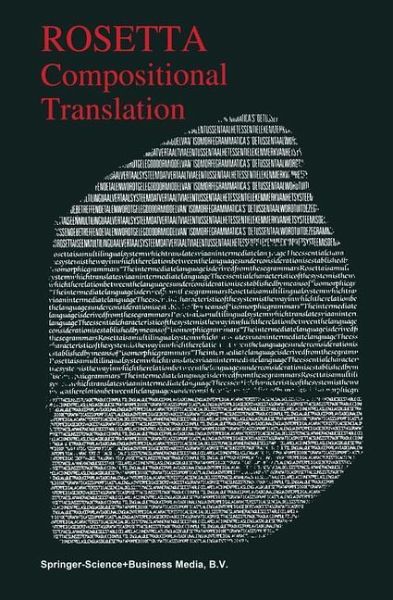
Compositional Translation
Versandkostenfrei!
Versandfertig in 6-10 Tagen
76,99 €
inkl. MwSt.
Weitere Ausgaben:

PAYBACK Punkte
38 °P sammeln!
Franciska de Jong and Jan Landsbergen Jan Landsbergen 2 A compositional definition of the translation relation Jan Odijk 3 M-grammars Jan Landsbergen and Franciska de Jong 4 The translation process Lisette Appelo 5 The Rosetta characteristics Joep Rous and Harm Smit 6 Morphology Jan Odijk, Harm Smit and Petra de Wit 7 Dictionaries Jan Odijk 8 Syntactic rules Modular and controlled Lisette Appelo 9 M-grammars Compositionality and syntactic Jan Odijk 10 generalisations Jan Odijk and Elena Pinillos Bartolome 11 Incorporating theoretical linguistic insights Lisette Appelo 12 Divergences between la...
Franciska de Jong and Jan Landsbergen Jan Landsbergen 2 A compositional definition of the translation relation Jan Odijk 3 M-grammars Jan Landsbergen and Franciska de Jong 4 The translation process Lisette Appelo 5 The Rosetta characteristics Joep Rous and Harm Smit 6 Morphology Jan Odijk, Harm Smit and Petra de Wit 7 Dictionaries Jan Odijk 8 Syntactic rules Modular and controlled Lisette Appelo 9 M-grammars Compositionality and syntactic Jan Odijk 10 generalisations Jan Odijk and Elena Pinillos Bartolome 11 Incorporating theoretical linguistic insights Lisette Appelo 12 Divergences between languages Lisette Appelo 13 Categorial divergences Translation of temporal Lisette Appelo 14 expressions Andre Schenk 15 Idioms and complex predicates Lisette Appelo and Elly van Munster 16 Scope and negation Rene Leermakers and Jan Landsbergen 17 The formal definition of M-grammars Rene Leermakers and Joep Rous 18 An attribute grammar view Theo Janssen 19 An algebraic view Rene Leermakers 20 Software engineering aspects Jan Landsbergen 21 Conclusion Contents 1 1 Introduction 1. 1 Knowledge needed for translation . . . . . . . . . . . 2 1. 1. 1 Knowledge of language and world knowledge 2 1. 1. 2 Formalisation. . . . . . . . . . . . . . . . . 4 1. 1. 3 The underestimation of linguistic problems . 5 1. 1. 4 The notion of possible translation . 5 1. 2 Applications. . . . . . . . . . . 7 1. 3 A linguistic perspective on MT 9 1. 3. 1 Scope of the project 9 1. 3. 2 Scope of the book 11 1. 4 Organisation of the book . .





